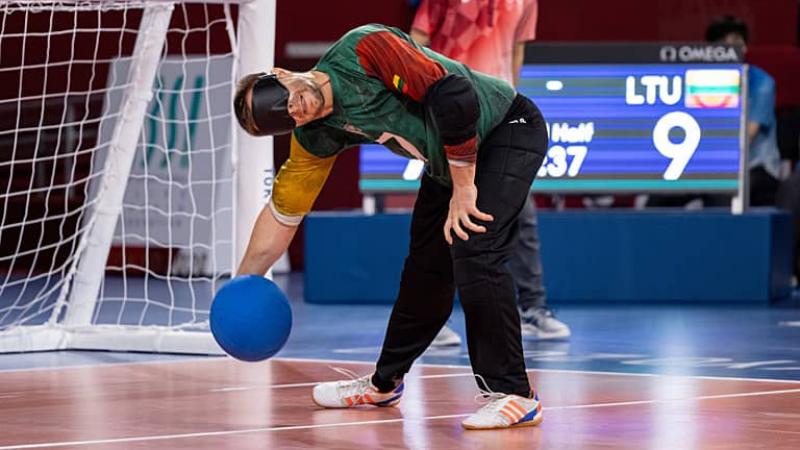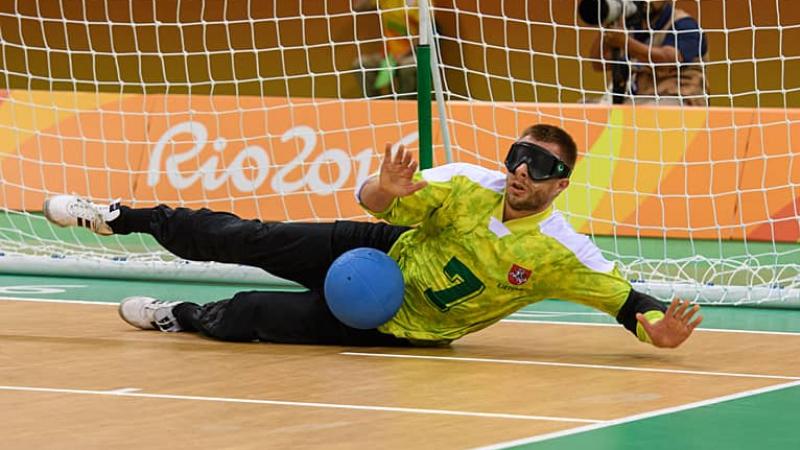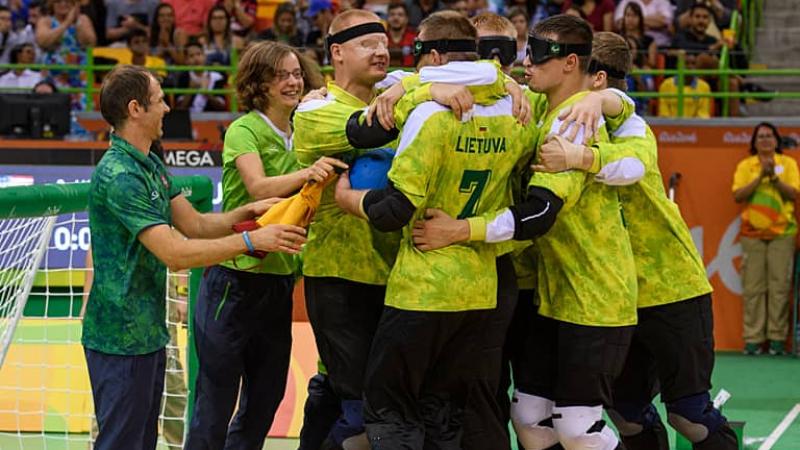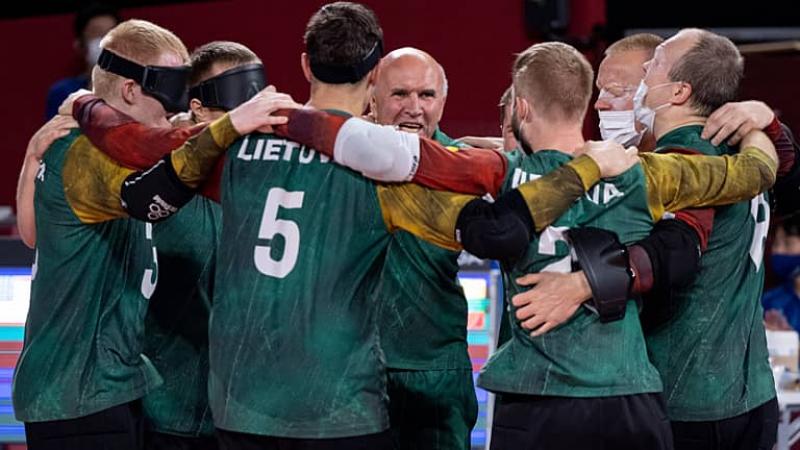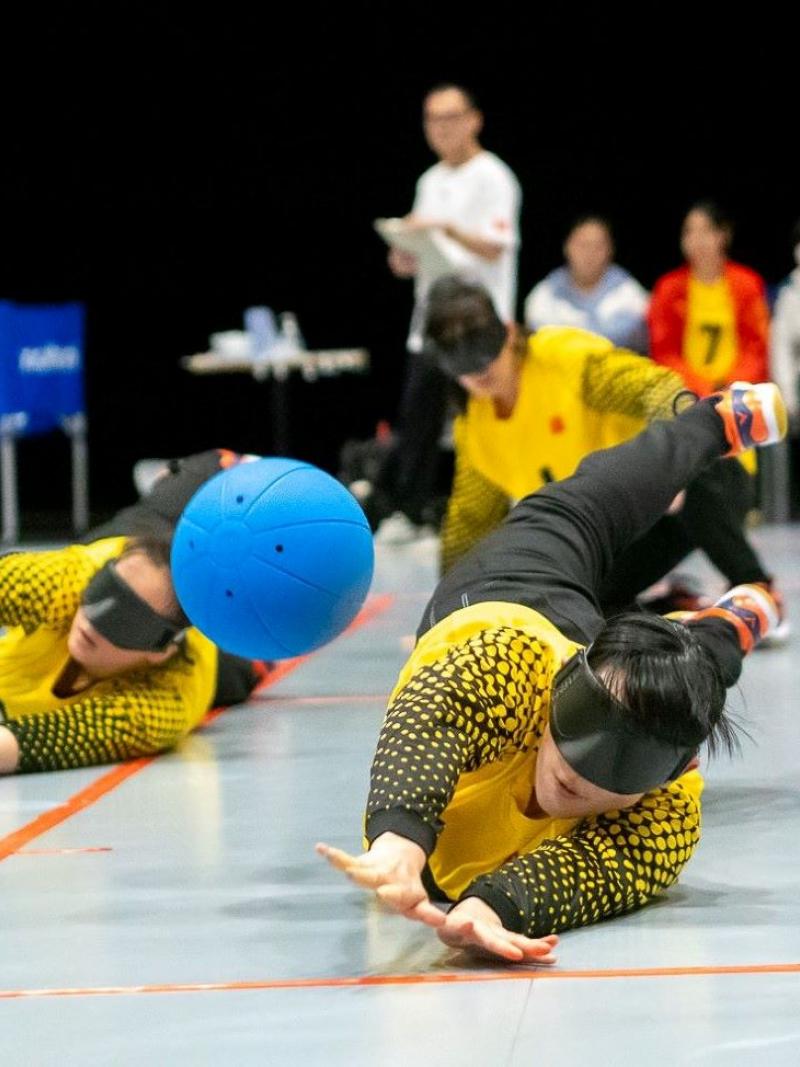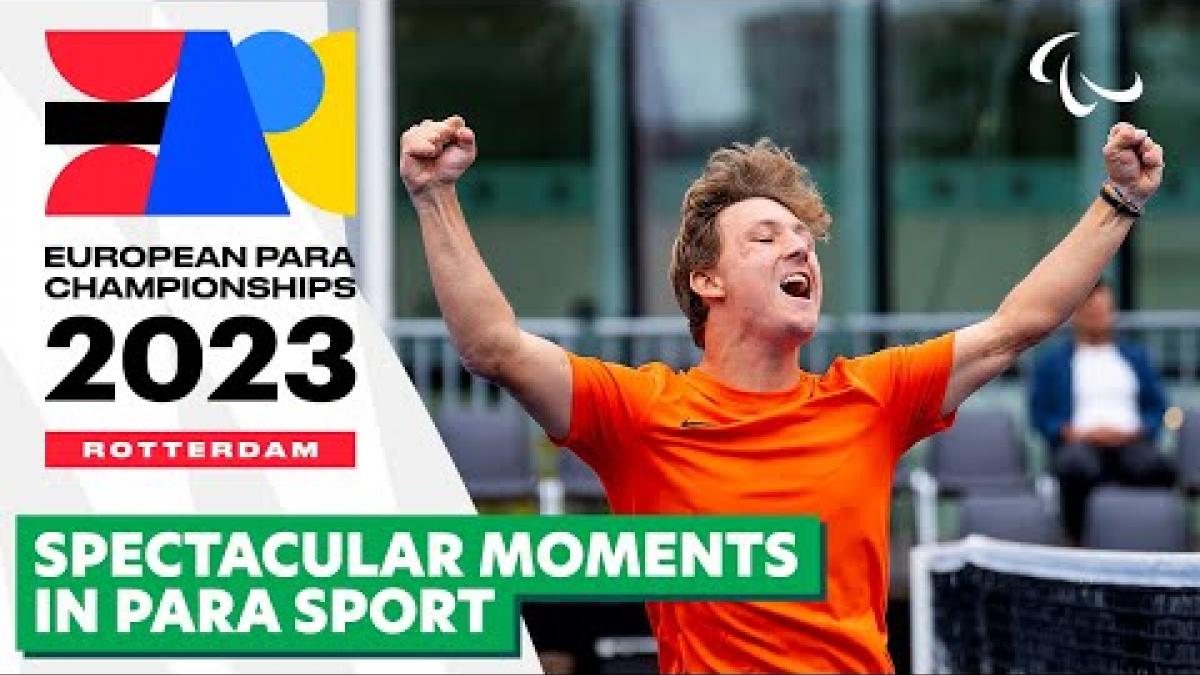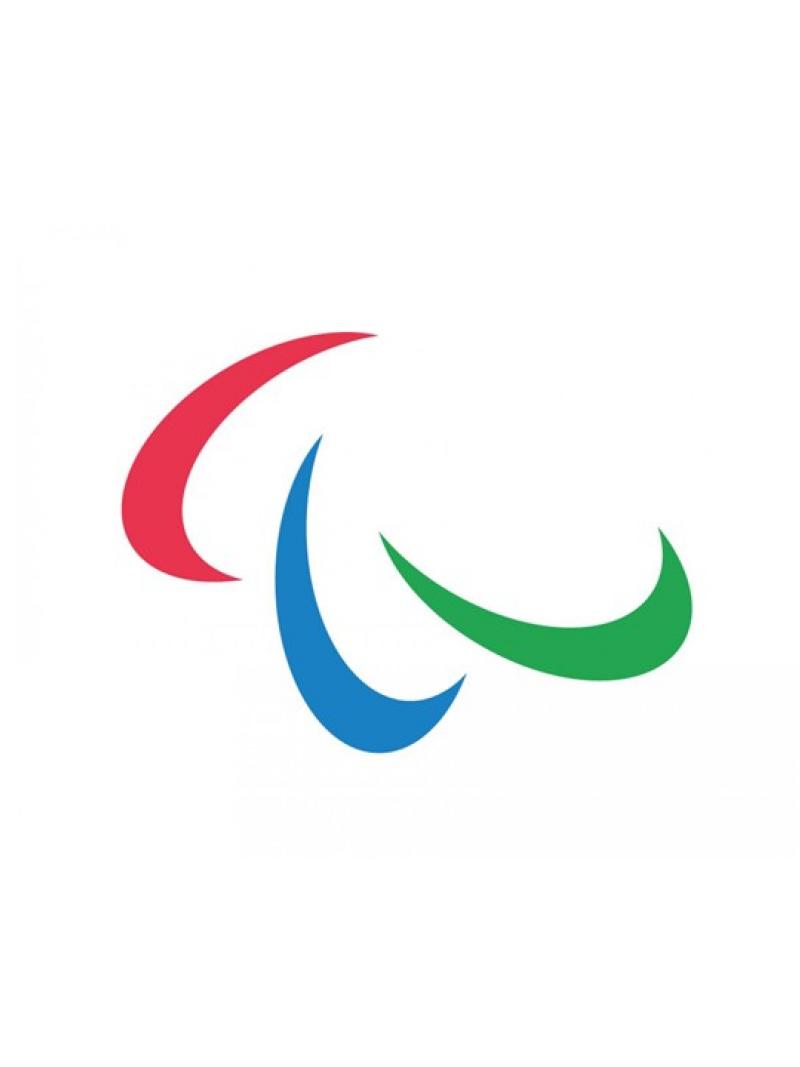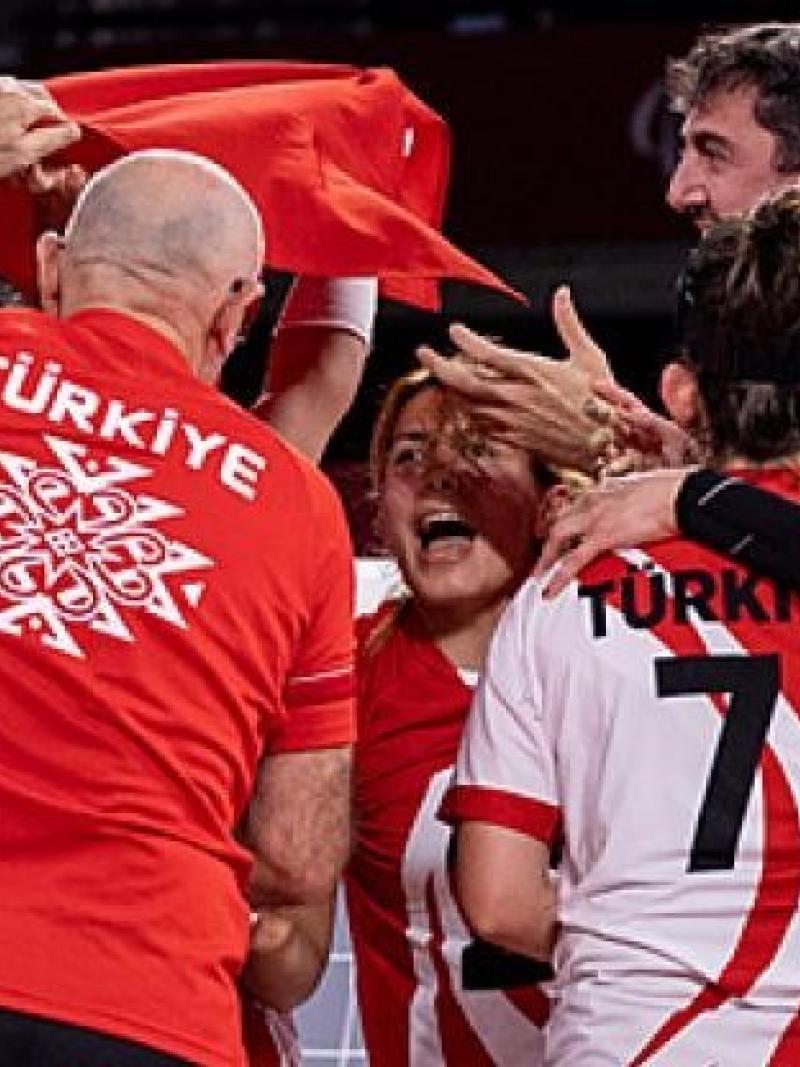Goalball legend Genrik Pavliukianec ready to relax
Travel, woodwork and a YouTube cooking channel… Lithuanian star has plenty lined up despite missing out on Paris 2024 Paralympics 22 Feb 2024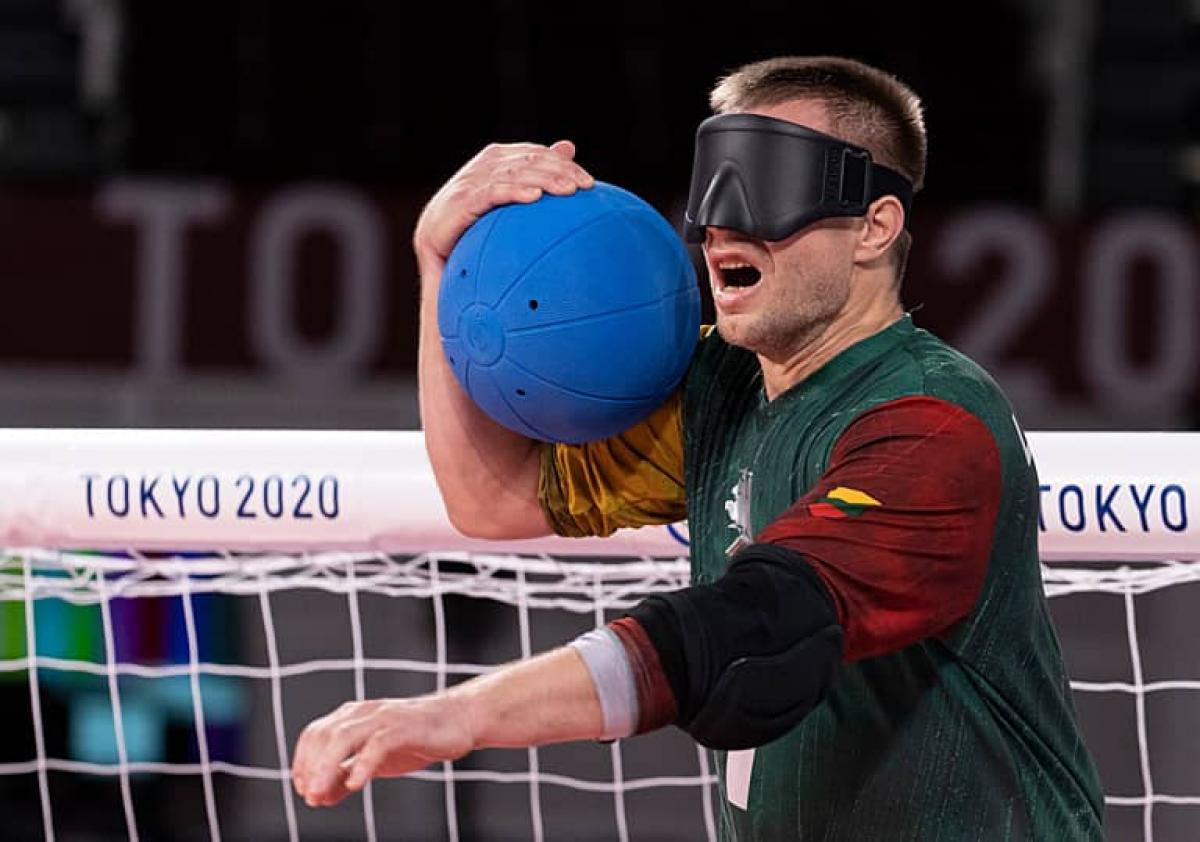
Genrik Pavliukianec is recognised as one of the best goalball strikers in the world. He helped Lithuania win gold at the Rio 2016 Paralympic Games as well as becoming the first goalball player to compete in six Games. After Lithuania missed out on qualifying for Paris 2024 this summer, the four-time Paralympic medallist has been reflecting on his incredible career and his plans away from the court.
It is widely accepted that you are the best goalball striker the sport has seen. How do you feel about that?
Maybe that's partly true, but there are a lot of good goalball scorers in the world - Brazilians, Chinese, Germans etc. Every team has good scorers.
Karolis Levickis, the long-time coach of the Lithuanian goalball team, used to say that every coach has a team, and that team is like cards, and the question is whether you can cleverly use each card. If someone has a joker, it's not all about the joker.
Karolis was very good at using that deck of cards - taking time outs, playing to the strengths of the players, giving timely advice. Coach was our eyes.
Maybe thanks to him, I became one of the top scorers. We worked together for 12 years and I became a top scorer many times during that time.
When did goalball enter your life?
I started playing goalball at the age of 13, at a school for the blind and partially sighted. At first I wanted to do athletics, but I was very skinny and thin, and they said "you don't have the right data – better go to music school".
I joined the goalball club out of curiosity, because I used to go to the gym to play basketball. And that day in goalball training there was one person missing on court - they said “get in the goals, even if you are wearing jeans”.
The next week I came again, and the coach suggested that I should come in sports clothes. The excitement and the desire to fight came when we took part in the Lithuanian championship with the school team. After that, we youngsters decided that we needed to play more and started to train more.
You are the first goalball player to compete at six Paralympics - what is your best Games memory?
The one that sticks out the most was Sydney [2000], the very first one. I remember the way we got there. It was our first Games and our first Paralympic medal - silver. Everything was unfamiliar.
And your worst?
The saddest was the Athens [2004] Paralympics, where we thought we would do as well as the first time, but we came ninth, I think. Maybe we went too relaxed that we even lost to an outsider team from South Korea. Then it was hard to think about further sport for a while.
You finally won goalball gold at Rio 2016 - how did that affect your life?
Daily life hasn't changed very much. Of course, when we came back from Rio, the attention from the government and the media that year was enormous. We raised the bar for Paralympic sport – Lithuanian athletes came back with two gold medals and one silver medal.
Famous people were also talking about Para sport. As time went on, that wave died down. Maybe it was because there were no more clear victories. There were only bronze medals in Tokyo. For the media to write and talk a lot, athletes have to win medals.
Then there was Tokyo 2020 during a global pandemic. How difficult was that challenge?
The Tokyo Games were one of the strangest in my history. The coaches changed, the team line-up changed, a few strong players were left out. We started that Games badly, we couldn't get going, there was always something missing, there were no spectators, it was a sad Games.
But when the decisive moment came, our experience helped us to recover and we finished fourth in the group. In the quarter finals, we beat the Belgians - it's rare that the team that finishes lower in the group wins against the team that finishes first. After a bad start, we finished well with bronze medals.
What is your most memorable goal?
In 2007, when we were playing the final of the European Championship against the Spanish team in Turkey and with seven seconds left, the coach called a time-out and I scored, and we won 2-1.
Of course, I cannot forget Rio, when I scored the fifth goal, the golden goal, in the quarter-final against Canada in overtime. Without it, we would not have made it to gold in Rio. It was a
delicious goal.
For much of your playing career you had (long-time captain) Marius Zibolis by your side. How has his tragic death last year affected everyone?
I knew Marius from school, he was one year older than me and started playing goalball earlier. His death was a shock for our team.
The team lost not only a player, but also the main engine. Marius was always in favour of positive, good emotions in the team, he was the one who brought the team together, especially the youngsters, he encouraged them, he didn't let them think that it would be difficult, that we would not win.
“Let's go, we will win, we are the strongest, let's go”, - he used to say. Lithuanian goalball has lost a lot with the death of Marius.
What are your other interests?
Travelling. I missed travelling so much. This year we have more time. After Rio I started to spend more time with my family, friends, travelling.
We meet in the city or travel together with other goalball players - Mindaugas Suchovejus, Juozas Eigminas. Especially after Marius' death, we started to value our friendship even more. Now we also talk more after training.
An old hobby of mine is working with wood, woodcraft in my workshop. I also have a culinary YouTube channel. Books have always been my hobby.
What is your perfect day off?
The perfect day off is a trip. When I go away with friends and get to know another country's culture, nature, customs and national dishes. I have started to see the world with different eyes now that I have more time.
For many years my life was very monotonous - work-training and the goal to win. Now it's different - more time for myself and my family. My next trip is planned in March to visit Thailand, Cambodia and Laos.





